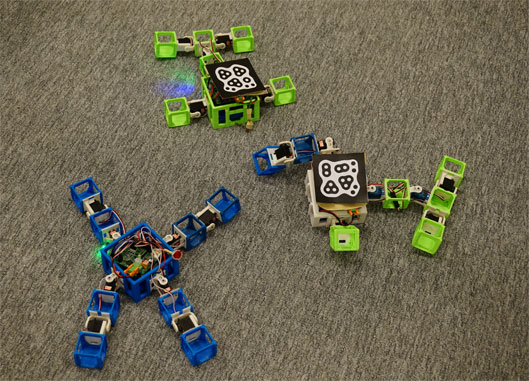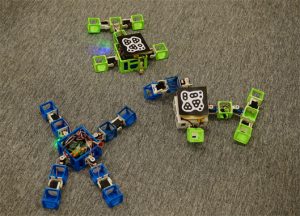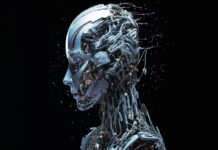
Dutch scientists have developed the world’s first robot that can procreate, paving the way for the beginning of a new area where machines that autonomously operate and reproduce are no longer fiction.

Professor of Artificial Intelligence at VU Amsterdam Guszti Eiben and his team described their achievement as “a significant first step in the Industrial Evolution” that can play an important role in, for instance, the colonisation of Mars.
This incredible achievement was illustrated during Campus Party in the Jaarbeurs in Utrecht on 26 May, where two of Professor Eiben’s robots demonstrated robot mating and the first robot baby was unveiled.
“This means that in addition to developing their brains by learning, robots can now develop their bodies through evolution. Because robot parents select suitable mating partners with certain desirable properties, successive generations can improve their physical form and behaviour, adjusting these to their environment and the task they have to perform,” it says in the press release by VU Amsterdam.
“This makes them suitable for locations where the circumstances are unknown in advance, such as mines in deep seas or other planets.”
Mr Eiben and a group of scientists from other universities have previously established a system architecture that consists of a “Birth Clinic”, a “Nursery”, and an “Arena” where robots live, work, and reproduce.
Following a year and a half development period, Mr Eiben and his team at the VU succeeded in implementing a complete life cycle.
They were able to complete a proof-of-concept and created physical robots that have their own “DNA” and can produce children via a 3D-printer.
Professor Eiben said that during reproduction the features of the parents are randomly recombined, including the software (the brain) as well as the hardware (the body). He said that after “birth” the newborn robot undergoes a learning process; if it passes muster it becomes an adult and can become a parent itself.
“Evolution is a great designer. The Evolution of Things is an emerging new technology that exploits the power of selection and reproduction to breed robot designs that are hard to obtain by traditional approaches,” Mr Eiben stated.
“Robots that evolve can adapt to their environment and cope with unforeseen situations. The bodies, brains, and behaviours are continually tested by the environment and the useful traits are amplified in future generations. This technology opens new perspectives for robotics, artificial intelligence, space research, and even biology.”




















